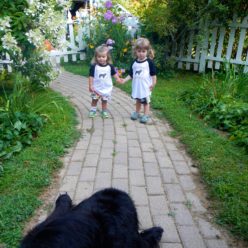A package from an educator friend, Inci Aslan, in Turkey who is the principal investigator of an Etwinning project I closely follow ,an email from Luis Miguel Miñarro, an educator in Spain with an accompanying link to an animoto Carnival 2014 video, a Facebook chat message from Lithuanian educator Irma Milevičiūtė who befriended me on Epals a year ago and whetted my interest in global communication, an informative hour-long Fuzebox.com conference with Julie Lindsay, an educator in Australia, about the Flat Connections Global Project —my world continues to expand as it shrinks. How does one keep up with “the learning revolution” or Classroom 2.0? How does one keep abreast of developments in International Education? I try to keep reasonably aware of international events through reading articles in the Chronicle of Higher Education and The Guardian. I occasionally shadow Global Education Conferences and follow several WordPress blogs dedicated to Global Education. And yet I am so globally illiterate. Here are some of my more recent musing about these questions
-
http://david-in-carroll-land.com/2013/08/06/loosely-translated-a-lithuanian-a-turk-an-american-and-a-teacher-from-poland-enter-a-virtual-meeting-room/
-
http://david-in-carroll-land.com/2013/05/07/three-questions-raised-from-attempting-to-create-a-virtual-cultural-immersion-course/
-
http://david-in-carroll-land.com/2013/04/14/reflections-on-creating-a-virtual-cultural-immersion-course-lessons-learned-part-1/
-
http://david-in-carroll-land.com/2013/04/21/pioneering-a-virtual-european-cultural-immersion-course/
Here are my some of reflections on this topic a few years ago… The world is open. I’ve been thinking about how to make our campus and curriculum more global. Here are some incipient thoughts about how that might de done. I’d welcome your thoughts.
- Increase awareness and use of media such as BBC News, Google News, and Newsvine.
- Incorporate Kiva into the classroom.
- Explore global views of religion, spirituality, and being.
- Tap into high quality online or “portable” courses.
- Explore other languages.
- Capitalize on cultural universals such as music, cusine, sports, and literature.
- Reading: Let’s encourage our faculty, staff, and students to read, discuss, and discover world literature. Though no substitute for reading, excellent recordings exist of introductions to world literature, world history, world religions, etc.What suggestions do you have that are simple and cost effective?
